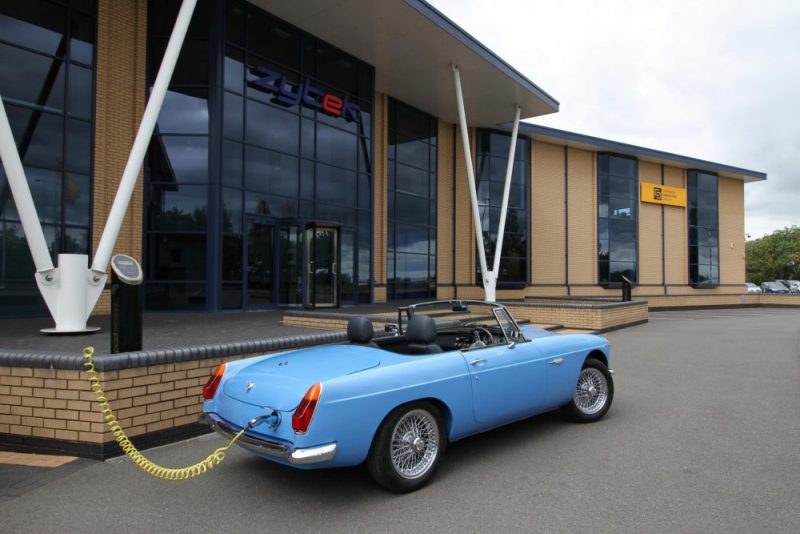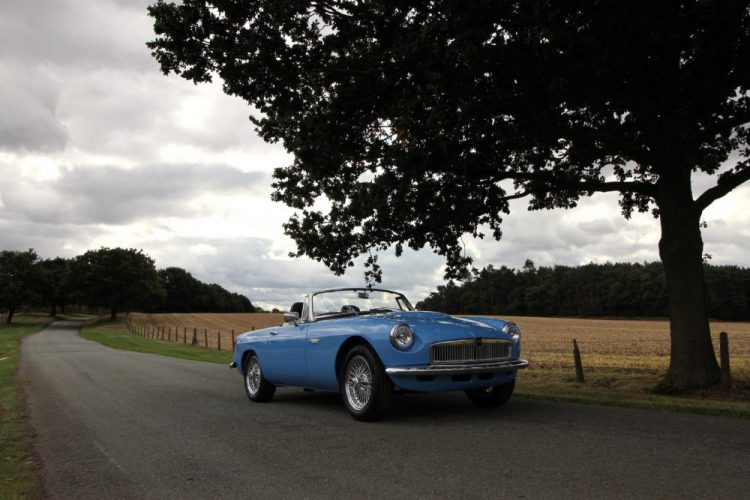
From 2030, every new car sold in the UK will have to be electric. That’s great for the environment. And it’ll probably mean daily motoring will cost less for drivers because certainly at the moment, electricity is cheaper than petrol or diesel.
The downside is electric cars are expensive to buy. So what about converting your petrol or diesel car to battery power? Is it possible? And if so, how much would it cost?
Can you convert a car to electric?
The simple answer is yes, you can. Electric motors are smaller than internal combustion engines. They don’t need a lot of the things that we take for granted with cars currently such as oil tanks and big radiators. And you won’t be needing the fuel tank or exhaust system either.
There’ll be plenty of space under the bonnet for the electric motor. While you might be able to fit the batteries where the fuel used to be, you’ll have to work out how to keep the batteries cool, particularly when they’re being charged.
Is it difficult to do?
Converting a car to run on electric is not something you’re going to be doing in the road outside home. There’s draining the fuel and oil systems and removing the fuel tank. Then you need to take the engine and all its pipework out. And what do you do with the gearbox? Electric motors don’t need a traditional gearbox.
But doing this mechanical side of things and finding space for everything is in many ways the easy bit. Electric motors feature incredibly complex electronics that control how the power is drawn from the battery. And then there’s dealing with a very high voltage battery and all the risks that can involve.

It’s not cheap either
Companies such as the London Electric Car Company and RBW Classic Electric Cars specialise in converting classic cars to run on battery power. Recently the London Electric Car Company transformed an original Rover Mini using a Nissan Leaf motor and drive train. The batteries live under the rear seat and in the boot. The good news is it says a full charge of the battery for 60-70 real-world miles will cost about £1. It charges from a household plug socket and is London Congestion Charge exempt. The bad news is the firm says car owners should budget £25,000 for similar conversions.
Where do electric motors come from?
Most companies that specialise in electric car conversions source their motors and batteries from electric cars that have been written off in crashes. And because the best-selling cars are Nissan Leafs and Teslas, that’s where most of the parts come from.
Think about an old car
Bearing in mind the cost and complexity of a conversion to electric, many people decide to do these conversions to a classic. Some people think this is some kind of sacrilege. Others see it as adding value to a car that’s likely to increase in worth any way. On top of that, older cars tend to be mechanically much simpler than modern models so they’re easier to strip.
Is it worth it?
That depends on the kind of car you want and how much you’re willing to spend. If the parts and labour to carry out the conversion costs around £25,000, that’s an awful lot of money. Particularly when you can buy a used Nissan Leaf or Renault Zoe for less than £10,000.
By John Price, a member of Green Flag’s team of automotive technical support engineers
Conversions are very expensive and tend to use used batteries, then there is the additional weight that has to be taken into account ref suspension and brakes (depending on the car). Also if you are recharging away from home expect to pay 30-70p per kWh rather than a domestic rate of 14p per kWh. They always quote the cheapest economy 7 overnight recharging cost rather than a more realistic spread sadly.
The cost of the batteries have to be a major consideration, a time comes when the batteries cost and the cost of the vehicle will make it uneconomical to replace the batteries. Cars that were highly desirable such as the BMW i8 that sold at a premium when new are now highly depreciated and until batteries get cheaper this effect will be more evident as the novelty of electric cars goes away and they become more mainstream